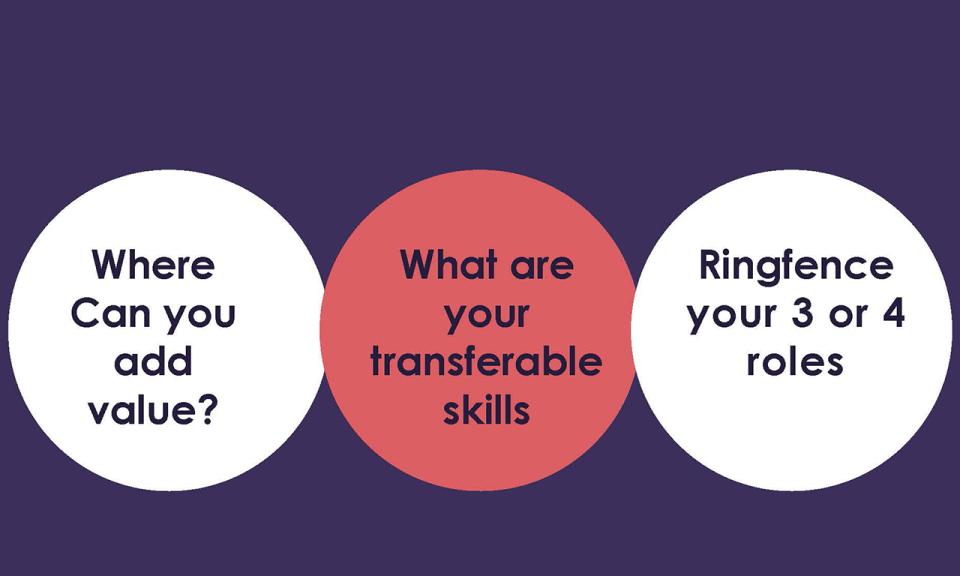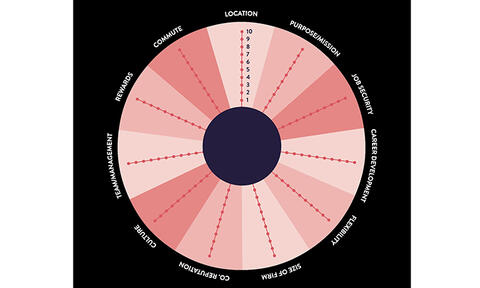
What are the key components for a winning career strategy and how can you set yourself up for success? This was the focus of a presentation from Dominie Moss, Founder and CEO of The Return Hub and Helen Cowan, Executive Coach and Founder of The Tall Wall. The event, open to all alumni and guests, was sponsored by Macquarie Bank and hosted by our Imperial Women’s Network. Our thanks to everyone for such an inspiring discussion, and for sharing these key messages from the presentation:
A vision for change
How can you make a successful career change happen? There are key three elements that need to be in place in order to drive change and be successful:
- A dissatisfaction with current state – you are unhappy with how things are currently.
- A vision of what is possible – what changes do you want to see?
- What do the first steps towards that vision look like – can you see a path to success?
As human beings, we are naturally resistant to change, therefore all three of these factors need to be in place before you can make change happen.
It is also important to be rigorous in analysing this desire for change – what is motivating you exactly? If not, you run the risk of finding a new job with all the same problems. Your reasons for seeking an alternative career vary from the simple desire to earn more money, to the complex, such as feeling jaded and unhappy with your current position.
Take a close look at your working life to see which aspects you would like to change, is it the actual content of your job and if so why? The Career Wheel is a useful reflection tool for this, it can help you identify what is important to you and can help narrow down what your dream job would look like.

You can also download a copy of this from The Return Hub.
Selling your strengths
The best strategy to take when considering a career change focuses on where you can add the most value and what are your transferrable skills. You can then ring-fence 3 or 4 key roles you would like to explore.
Review how you can you articulate your value proposition to an employer and reflect on your transferable skills. Think about the role from the hiring managers’ perspective – what are they looking for? What challenges are they looking to solve, and how can your experience help them? To ensure a career change is successful you need a positive attitude and a willingness to work hard to make it happen.
You need to do your research and understand the similarities and the differences between your current industry and your target one, and understand how your skill set will relate to the new sector.
Transferable skills are often overlooked by career changers, but are desired by employers. For example are you adept at analysis and decision making, do you have good commercial awareness, are you creative with good customer focus, and able to influence and communicate effectively? Team building, leadership, planning, organising and self-management are also key skills.
The best strategy to take when considering a career change focuses on where you can add the most value and what are your transferrable skills.
The next task is to market yourself. Work on your CV, which needs to describe your projected future, not just look back at what you have already done. Place emphasis on the skills and experience that are transferable and will be of value in the new role. It is important to tailor your CV to each new job, ensuring your achievements specifically relate to the job you are applying for. Your CV needs to convince your potential employer that they should give you the chance to succeed in a new field and your desire to change career must seem like the next logical step. And as always self-belief is key – you must believe you can make the change in order to make it happen.
Research and network
It is essential you do your research when applying for a new role, especially one in a new industry.
Learn about the organisation through social media and their website, as well as industry bodies, thought-leadership articles and the press. Are there any professional courses and qualifications that would help you?
In addition, remember the importance of exposure. This is critical for career development if we look at the different elements to success - performance is 10%, impact is 30%, but exposure is weighted at 60%.
In order to increase your exposure, you need increase your networking. It is beneficial for several reasons as it can help you can spot trends and opportunities, increase you collaborative work and therefore enhance your own value, and provide cognitive diversity of thought. When applying for jobs 80% of are sourced through your network.
Your network consists of:
- Operational network – those who help you do your job efficiently
- Personal network – those who you have a personal connection with
- Strategic network – those who understand the strategic direction of the business/sector
By building on your networks, you are investing in yourself and your worth to a potential employer.
Want to know more?
You can view all the presentation slides from the event here. And if you would like to know more The Return Hub will soon be launching The Career Academy – an online career portal offering a wealth of interactive tools and e-learning content to help you navigate the job market including coaching options from The Tall Wall. Please make sure you register to ensure you qualify free membership when it is launched.
